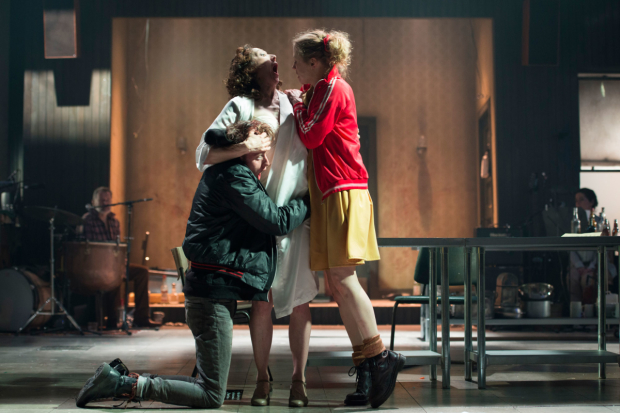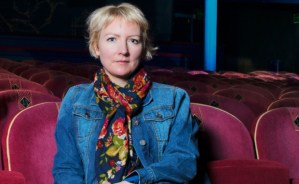Edinburgh review: Oresteia: This Restless House
Zinnie Harris’ pop gothic take on Aeschylus’ tragedies for the International Festival works an absolute treat

© Tim Morozzo
Of all the Oresteias in recent years, it is Zinnie Harris‘ pop gothic version that makes you understand the play’s prominence of late. It is a cycle in which the choices of one generation rebound on the next and in Harris’ hands, boy do the young have it bad. By the end, Olivia Morgan’s Electra and Lorn Macdonald’s Orestes are itchy with mental illness, haunted by the traumas of their childhood years and the ghosts of the past. The pattern’s been prominent across this year’s Fringe. Several plays have sped through the decades to show the legacy of neoliberalism lying in ruins. British politics has been shaped like a tragedy these last 40 years: rise to greatness; hit hubris; fall to despair.
Where Robert Icke’s Oresteia was pared back and Spartan, This Restless House is freewheeling and unfussy in the way that the best Scottish theatre can be. Played on Colin Richmond’s village hall set, damp creeping up the walls, ceiling tiles falling in, Dominic Hill‘s rambunctious production just cracks on with it, mixing storytelling, song and dramatic scenes. A chorus of street drunks kick us off, kings and queens wear tracksuit tops and green parkas, and a house band drops pulsing bass riffs. It’s a thrilling, gripping thing, laced with both light and dark. Harris careers from the domestic to the operatic, from ordinary folk to demi-god royals, from detailed description to visceral imagery.
This is Greek tragedy as a graphic novel; Aeschylus in the style of The Fades or Utopia. It works an absolute treat. Ancient beliefs and rituals blend beautifully with nu-gothic tropes, so that the supernatural and the uncanny go toe-to-toe. Ghosts and gods intermingle; mysticism and mental illness. Electra’s graveside libations become the odd rite of an isolated teen. The whole show has Hades at its heart, as ghosts stalk the tragedy: Iphigenia’s blood-stained body softly spurs her mother, Clytemnestra, to revenge; George Anton’s flinty Agamemnon, a tower of toxic masculinity, plagues his wife after death and she, in turn, haunts the children that took her life. The final part of the trilogy, The Eumenides, ends with Electra restrained in a mental institution.
This isn’t just a cycle of revenge though – murderers revisited by death. It is the story of undead patriarchy. The moment Clytemnestra despatches one sh*tbag husband, another – Aegisthus (Keith Fleming) – springs into her life. Domestic abuse replaces open infidelity; a beery brute in a wifebeater vest instead of the still strength of a king. Orestes, too, finds his father’s tattoos bleeding through his skin and his battle scars setting in. "I’m turning into my father," he screams. Whatever happens, patriarchy survives. Clytemnestra castrates her first husband’s corpse to keep his ghost at bay – all to no avail.
The text is peppered with images of new beginnings. Even the chorus can’t agree when this story starts: with Iphigenia, with Helen of Troy, or with a sign from the gods in the sky. Nor can anyone bring the cycle to a close. No amount of ritual cleansings and new leaves can erase the past or exorcise those ghosts, and Harris examines the process of recovery in part three. She parallels Electra’s story with an addition: that of her psychiatrist (Kirsty Stuart), holding herself together day-by-day against her own haunted past. It’s almost overload, but it offers a vital and hopeful juxtaposition – you can learn to live with your ghosts, you can keep the past in check.
The brilliance, though, is in the brio. Hill’s staging is a real nerve-jangler. Ben Ormerod’s lighting seems to thicken the air, seeping a chlorine-green pallor over the whole, and Nikola Kodjabashia’s soundscape creates an aura of horror. Strings screech. Pianos clang. Drums ring out in the dark. There are a swath of super performances too: Pauline Knowles is both feisty and frail as Clytemnestra, Macdonald is a wretched Orestes and Morgan, most of all, falls to pieces as trauma chases her down. All of it combines in an ancient Greek ghost story that’s something special.
This Restless House runs at The Lyceum until 27 August and then runs at the Citizens Theatre from 31 August to 9 September.













